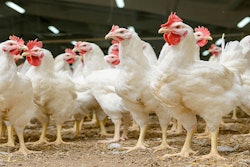
|
SALEM, Ore. (AP) — Local governments in Oregon will continue to be prohibited from regulating genetically engineered crops. Bills to ease the ban both failed to make it out of committee at the legislative session, the Statesman Journal and Capital Press newspapers reported. Those who oppose local government action say rules regarding genetically modified crops should be enacted at the state or federal level, not through a patchwork of county ordinances. Voters in two southern Oregon counties — Jackson and Josephine — approved anti-GMO ordinances in May 2014. The one in Jackson County was allowed to stand because it had qualified for the ballot before lawmakers approved the ban that stopped communities from taking the regulatory action. The Senate Environment and Natural Resources Committee recently heard conflicting testimony about the frequency of cross-pollination among genetically engineered, conventional and organic crops. Sen. Michael Dembrow, D-Portland, who chairs the committee, said Thursday that too many questions remain about the extent of cross-pollination and the efficacy of mediation if a conflict arises. "I want to get a sense if there are problems with contamination or if there are problems with the mediation process," he said. It's the third time environmental and farm groups have tried and failed to pass the legislation, which they say is needed to prevent genetically engineered crops from contaminating organic and conventional crops. "Our farms remain at risk of contamination because the state has not put any protections in place," said Carol Valentine, a resident of Josephine County, which saw its ordinance struck down by a court. Lawmakers still are considering another bill that would let farmers sue Monsanto, Scotts Miracle-Gro and other companies that hold patents on genetically engineered seeds if crops grown from those seeds contaminate traditional or organic crops. The bill would allow landowners to seek three times actual economic damages if genetically engineered organisms are present on their land without permission. It is scheduled for a work session next week in the House Judiciary Committee. |






















